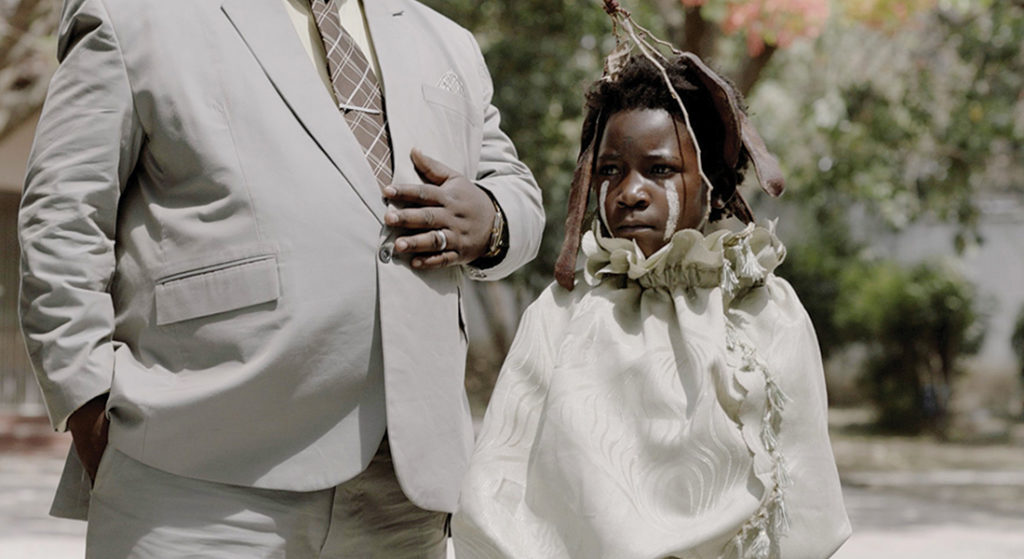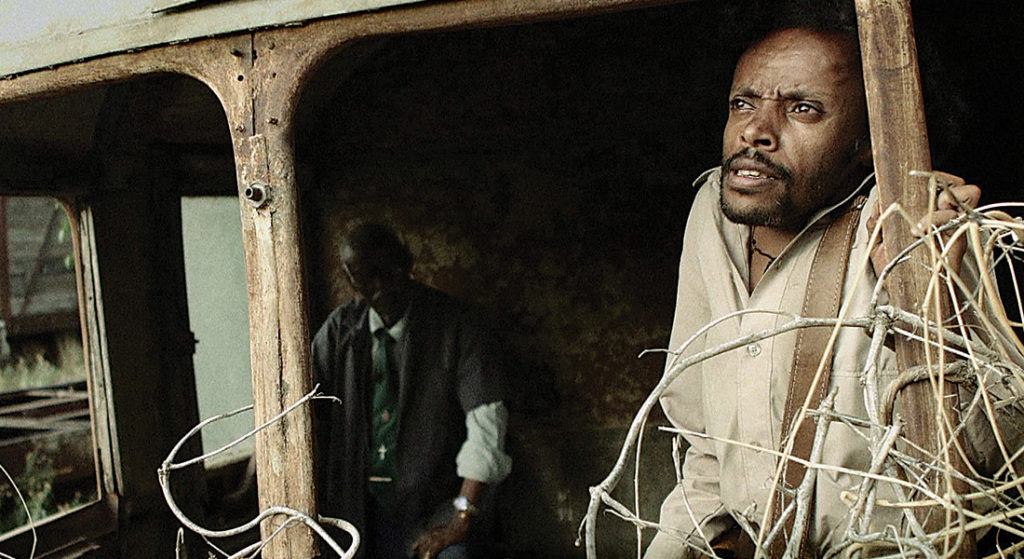
Have you always been curious about African speculative film as a genre but just didn’t know where to start? Lucky for you, Namwali Serpell has some suggestions to get you going.
Serpell was recently invited to curate a series of African films that explore the genre of speculative fiction for the Wexner Center for the Arts at The Ohio State University. Serpell describes the series, titled “Speculative Africa,” as such:
Witches, djinns, cyborgs, rockets—all from a once and future Africa. Speculative Africa showcases a set of recent films from Senegal, Ghana, Zambia, Kenya, and Ethiopia that engage with the otherworldly: alternative histories, future realities, perceptual distortions, supernatural forces, outer space. Encompassing genres from Afrofuturism to surrealism to zombie flick, these films bend representation. They warp both the reality effect of the camera and the demand to represent the ‘real’ Africa—or its stereotyped mythology. Mocking this anthropological gaze, the films of Speculative Africa instead invoke the roots of ‘speculate: to imagine, to risk, to look otherwise.
Below is a list of the films included in the series with descriptions from the Wexner Center’s website:
I Am Not a Witch (dir. Rungano Nyoni, Zambia, 2017)

I Am Not a Witch, the often humorous, slyly feminist debut feature by writer-director Rungano Nyoni, tells the story of an eight-year-old Zambian girl accused of sorcery after a minor accident occurs in her presence. The child is sent to a “witch camp,” where similarly accused women in her region are held captive and forced to perform manual labor, act as tourist attractions, and even use their “power” as needed.
Atlantics (dir. Mati Diop, Senegal, 2019)

Atlantics follows Ada and Souleiman, a young couple in Dakar, who are separated when Souleiman crosses the ocean with friends. But instead of becoming the expected story about the plight of the contemporary refugee, the film stays with Ada, the woman left behind. From there, Atlantics becomes a genre-bending look at love beyond time while addressing nuanced issues of class, power, and gender.
Pumzi (dir. Wanuri Kahiu, Kenya, 2009)

From the director of the acclaimed lesbian romance Rafiki, Pumzi is Kenya’s first science fiction film. Set 35 years after a future world war fought over water, the film follows a botanist who strives to reach the “dead zone” with a plant that she’s been nurturing.
Crumbs (dir. Miguel Llansó, 2015)

Set against stunning Ethiopian landscapes, Crumbs follows the postapocalyptic journey of a strange scrap collector, Gagano. Alternately gripped by daydreams and constant anxiety, Gagano has had enough of scavenging through the crumbs of a decayed civilization to find such priceless relics as Michael Jordan merch and Teenage Mutant Ninja Turtles toys. When a long-dormant spaceship hovering overhead awakens, Gagano has to overcome his fears—as well as a witch, Santa Claus, and a latter-day Nazi—to discover things aren’t quite the way he thought.
Afronauts (dir. Nuotama Bodomo, Ghana, 2014)

17-year-old Matha is chosen to be Zambian’s first person to land on the moon. Through a series of space training experiments led by school teacher Nksoloso’s space program, the group of Zambian exiles plan to beat the U.S. to the moon. Matha deals with the expectations and responsibility placed upon her while her aunt fears Matha is being used as a disposable sacrifice.
The series was to be screened during a weekend in March in conjunction with the paperback release of Serpell’s speculative epic, The Old Drift, but the screenings were canceled due to COVID-19 concerns. However, the Wexner Center has provided links that will allow you to watch the films online here.
Enjoy!









Africanizando el confinamiento (4) – Pandemia Coronavirus 2020 May 12, 2020 13:10
[…] series y programas televisivos a seguir desde el sofá y Namwali Serpell ha seleccionado cinco películas especulativas africanas ineludibles. Se pueden ver en este enlace cortesía del Centro Wexner. También podemos sumergirnos […]